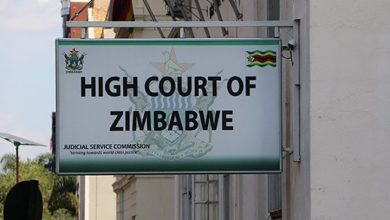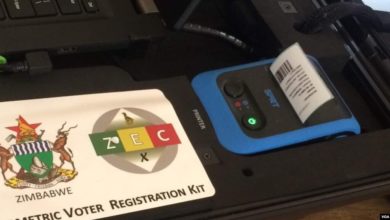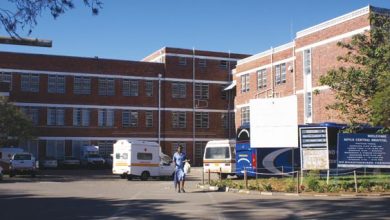
By Musa Makina
WHEN human rights abuses are mentioned, at face value, what usually comes to mind is the harassment, arrest and torture of citizens by security forces.
However, human rights abuse cuts across and come in many forms; it is broad in such a way that it goes beyond the systematic abuse of citizens by security forces.
The international community often focuses on monitoring political victims to measure the scourge of human rights violations, in the process shutting out voices of the marginalised whose cries for help are largely ignored.
Since the coronavirus induced lockdown started, human rights abuses in rural areas have not only been ignored but have largely been overlooked, leaving rural folk suffering in silence.
An investigation carried out by this publication revealed that various forms of human rights abuses have been taking place in remote areas since lockdown started.
The right to health, education, access to information and the right to food, among others, stalk many rural folk.
Shiela Siyampande of Binga, in Siabuwa said the situation was bad in rural areas.
“We have for years stayed under these difficult circumstances where everything ranging from health facilities, food, transport and education facilities has been a challenge, but this Covid-19 has worsened our plight. Right now if one is suspected to be ill of Covid-19, the nearest clinic is 15 kilometres. So with the rate at which we are told this disease kills, chances are high that one will arrive dead at the clinic,” he said.
Another villager, Laison Nkomo from Siantula area said the government was not doing enough to ensure that information about Covid-19 is equally shared among rural people.
“It is sad that it’s almost a year now since Covid-19 came to Zimbabwe, but there have not been proper communication structures to ensure we are equally informed about the pandemic. For example, there is a whole debate about vaccines and we are in the dark, we don’t know which is which,” Nkomo said.
Section 62(2) of the Constitution of Zimbabwe Amendment (No.20) Act 2013(the Constitution) guarantees citizens and permanent residents access to information held by the Government in as far as it is required in the protection of a right.
While schools have been closed as one of the measures by the government to curb the spread of the pandemic, rural areas have suffered the most as children have largely remained idle when compared to their urban counterparts who have access to online and radio lessons.
This, has left a huge human rights gap in as far as education is concerned.
Vumani Ndlovu, Rural Communities Empowerment Trust coordinator said the situation was bad in rural areas.
“Since independence, we have seen a lot of untold suffering in marginalised rural areas owing to a sustained human rights abuse record. You can think of it now how worse can it be, under this Covid-19 lockdown. Our assessment in most rural areas reveals that many need food aid yet in some circumstances you get food being distributed on political grounds, which is a serious human rights abuse,” Ndlovu said.
He further noted that it was sad that due to poor information access in rural areas, most of the abuses go unreported.
“Rural people are suffering in silence, they go through many forms of abuse especially during this lockdown period, talk of women their right to sexual reproductive health, children’s right to education among other things. I feel the media or other information organs that are available have not done much to bring out such issues.”
Matabeleland South Chief Nyangazonke admitted that rural areas were in a human rights fix.
“We have a number of human rights challenges as rural people. This Covid-19 has worsened them. Remember our system of working is we have to be in groups but we cannot do that now.
“The other things people need letters to travel and village heads normally issue those letters, but some police officers choose to disregard them. As much as we are trying to adhere to regulations it is not easy as there are a lot for challenges for rural people,” Chief Nyangazonke said.
He added that it was unfortunate that most areas were now being shunned by transporters due to bad roads. This, he said, has led to donors failing to reach some areas with needed foodstuffs.
“Another thing is people are in the dark information wise. For example, in Matabeleland South, there are areas which still do not receive local signals, so they get foreign radios and television signals which makes it a huge challenge especially now when more information is being shared about Covid-19 and vaccines.”
Analyst, Anglestone Sibanda whose non-governmental organisation operates in Matabeleland rural areas said there is a general trend of limiting human rights abuses to mere harassment by police “and that is a shallow and myopic view.”
“Human rights are broad and if we are to look at them in a broad, universality, Indivisibility and interdependence sense we find that a lot of abuses are happening in our communities,” Sibanda said.
He said the right to health is one of the commonly violated rights.
“Most rural communities struggle to access healthcare facilities and the incessant rains have made some communities inaccessible. As such the right to health is grossly violated as clinics are not reachable and women have to walk long distances to access their maternal health facilities.”
Zimbabwe Human Rights NGO Forum in its recommendations to the government stated that access to information by citizens is everyone’s right.
“We urge the Inter-Ministerial Taskforce to take this into account in its programmes around ensuring information on the lockdown cascades to the grassroots as was announced by the Minister of Information, Publicity and Broadcasting Services, Monica Mutsvangwa.”
The report also recommended the government to “provide safety – nets for vulnerable groups of society and come up with practical measures to ensure that citizens have access to basic commodities including sufficient food and clean and portable water, medicines during this national lockdown period.”
“For critical moments such as these, it is extremely important that the nation is kept fully informed of the developments and measures being undertaken by the government to curb this pandemic. Access to accurate information is key to contain any anxieties by citizens. To that end, the Forum wishes to remind the Government that a very large number of people in Zimbabwe live in rural areas with no access to the internet and smartphones,” the report reads in part.





